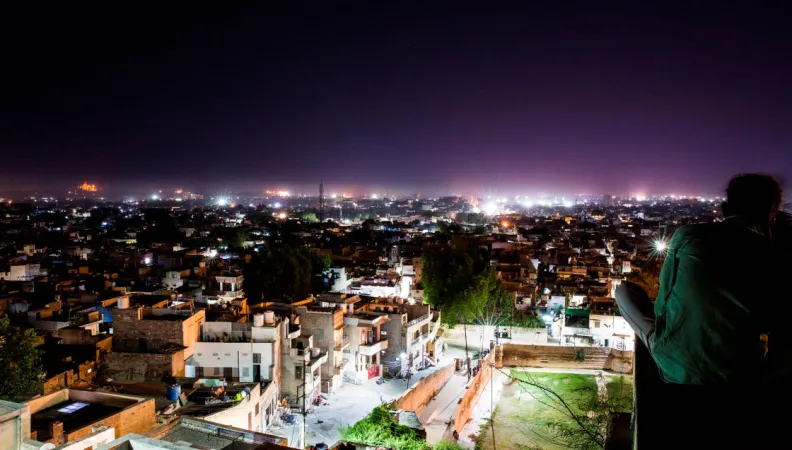Share the page
Territorial and Ecological Transition

Successfully completing territorial and ecological transitions means developing the potential of each local area. This emphasis on territories is one of the primary innovations in the agenda for the Sustainable Development Goals (SDG).
Limiting urban sprawl, fighting inequality, enhancing the offering of sustainable transport and infrastructures, connecting urban and rural areas, improving access to basic services, regulating soil and water use, preserving and restoring biodiversity, promoting sustainable use of natural resources, and fighting deforestation are just some of AFD’s priorities.
Planning urban development
Global cities, but also small and medium-size secondary cities and towns, are growing and multiplying to absorb the majority of the world’s population growth. They are already home to more than half the global population, consuming 80% of energy on barely 1% of the Earth’s surface. Multiple cities across the globe are already facing water shortages.
As urban populations grow, urban planners face immense challenges: planning the national territory to achieve an urban network that promotes national cohesion, and using urban planning to create sustainable, inclusive development of cities.
AFD Group works toward fluid, non-polluting traffic, compact cities that balance built spaces with natural areas, preservation of water resources, and access for all to high-quality essential services, including drinking water and sanitation.
Finally, against a backdrop of climate change, we work to protect the urban population from natural disasters.
Sustainable planning for rural areas
Setting rural areas on a development trajectory that offers economic, social, political, and environmental benefits is essential to the future of the planet. Indeed, these regions face many challenges: providing a larger, more demanding global population with both food and non-food (energy, fibers, etc.) agricultural products that are safer and more processed. To do this, they must once again offer opportunities for young people in terms of employment and quality of life, particularly in countries beginning their demographic transition.
AFD improves living conditions in rural areas by developing the infrastructures that connect them to cities and offering more affordable, reliable essential services for those with very basic lifestyles. We support improving the legitimacy and skills of local regional authorities.
We encourage sustainable planning for rural areas by supporting balanced, fair policies to emphasize and conserve natural resources (soil, forests, etc.). We help implement integrated management mechanisms for water resources, to promote sustainable, shared use among all users (agricultural, industrial, and domestic).
We support agro-ecological intensification to create decent employment opportunities and sustainable economic prospects for farmers, as well as to develop a selection of high-quality agricultural products that can supply cities and reduce trade deficits. In all territories, we fund infrastructures and developments that help reduce greenhouse gas emissions and increase adaptation to the effects of climate change.
